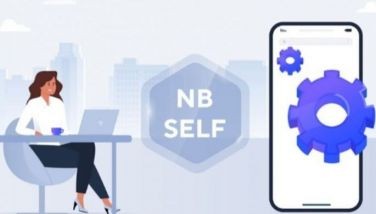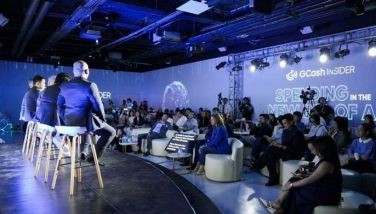Digital curse?

Over the past 40 years, the world has changed in ways that were both dramatic and destabilizing. And now, we are trying to come to grips with the next stage, artificial intelligence.
I have welcomed the coming of digital technology. It made my life as a journalist easier. I can’t imagine writing a column during the pandemic lockdown without the help of digital technology. When I was starting out as a beat reporter, the top columnists had runners who gathered and checked information for them. Today, Google suffices when I want to check information. Or Viber or Messenger, if I want to clarify something from a news source.
But digital social media’s impact on the news industry has been negatively profound. The economics of print journalism had been turned upside down. Community newspapers are closing.
In the US, Statista, a polling group that keeps tabs on social media, reports that one out of three Americans between the ages of 18 and 29 currently gets their news from TikTok.
TikTok, the Chinese social media platform that has taken the world by storm, is threatening to control the minds of its users everywhere with their addictive algorithm. Recognizing the danger posed by TikTok to national security, a law was passed requiring it to divest ownership or shut down operations in the US.
The great danger posed by TikTok, other than gathering personal information and digital habits of its users, “is its potential to subtly manipulate the way we understand everyday reality,” an article in southasiajournal.net points out. “The platform’s algorithms, thanks to AI, can shape the final product to produce subtle effects that may not be immediately obvious.”
We have lost control over our personal information, thanks to digital technology.
“Social media today not only gives influencers extraordinarily detailed information about anyone who is online, it also lets messaging be tailored to the sensitivities and weaknesses of each individual member of its target audience. That audience is essentially us.
“Social media turned out to be the perfect vehicle to reach the previously disenfranchised and convince them to add their votes to the Trump campaign. The strategy worked. In 2016, Trump lost the popular vote by nearly three million votes but won the Electoral College by 77 electoral votes and was declared president.
“Cambridge Analytica’s meddling in US politics was one thing. Giving that kind of leverage to China, which has increasingly expressed hostile intentions against the United States, especially in disputes over Taiwan and naval traffic in the South China Sea, is a different matter altogether.”
It is unnerving to allow Beijing access to our vital personal information through TikTok. South Asia Journal points out that “all that information gives ByteDance, TikTok’s owner, a platform that enables it to frame and manipulate communications among more than half the US population.”
We are on the same boat as the US. Almost half of our population, 49 million, are active TikTok users. Imagine the TikTok algorithm tailoring messaging to half of our population to give a pro-Chinese politician a big edge. This is a dangerous vulnerability for us, given the state of our relations with China today.
In fairness, the threat is not limited to TikTok. The South Asia Journal article asks: “What happens if a powerful US-based social media platform – Elon Musk’s X (formerly Twitter) or Zuckerberg’s Facebook, or Google – decides to shape our reality for its own potentially destructive purposes?”
How will that happen?
“Large language models and artificial intelligence are redefining what is possible, especially as more and more of our lives are conducted over the internet. We live, to a greater extent than ever before, in a virtual reality conveyed to us by smartphones, tablet screens and laptops, and very likely in the future by virtual reality goggles and headsets.
“It’s a good deal easier to tamper with that reality than the physical reality that surrounds us. Taking all that into account, it is not hard to understand why Congress voted nearly unanimously to insist that TikTok cut itself loose from any future manipulation by a potentially hostile Chinese Communist Party. Business naturally disdains government regulation, but what happens when business gets access to tools that enable a few CEOs to redefine society? The damage at home could be just as great as anything from a malevolent TikTok teleguided by China.”
Our own Congress must act before it is too late.
The dark side of digital technology is now all over the news.
CNN reported last week that a divorced man killed himself after falling victim to a scammer he met on social media who enticed him with offers of love and investments. Apparently, that scam is a multibillion-dollar industry operating on the Myanmar-China border.
Technology has empowered criminals. Unfortunately, our government has proven inadequate in dealing with them.
But some governments are starting to move. New York just passed the SAFE For Kids Act and the Child Data Protection Act designed to protect teenagers. This was in response to calls for legislation clamping down on social media platforms, arguing that tech companies’ products are to blame for mental health problems of teens particularly eating disorders, sleeplessness, distraction and in some cases, self-harm and suicide.
New York Attorney General Letitia James said that the legislation would take on “the most dangerous aspects of social media, the addictive algorithm feeds that exploit impressionable minds.”
And yes, social media’s algorithm feeds may yet kill democracy, a case of mass suicide by clueless citizens unable to distinguish truth from fake news. There is a 50/50 chance America, the bedrock of democracy, will bid democracy goodbye if it elects the wrong leader this November.
Boo Chanco’s email address is [email protected]. Follow him on X @boochanco
- Latest
- Trending





























